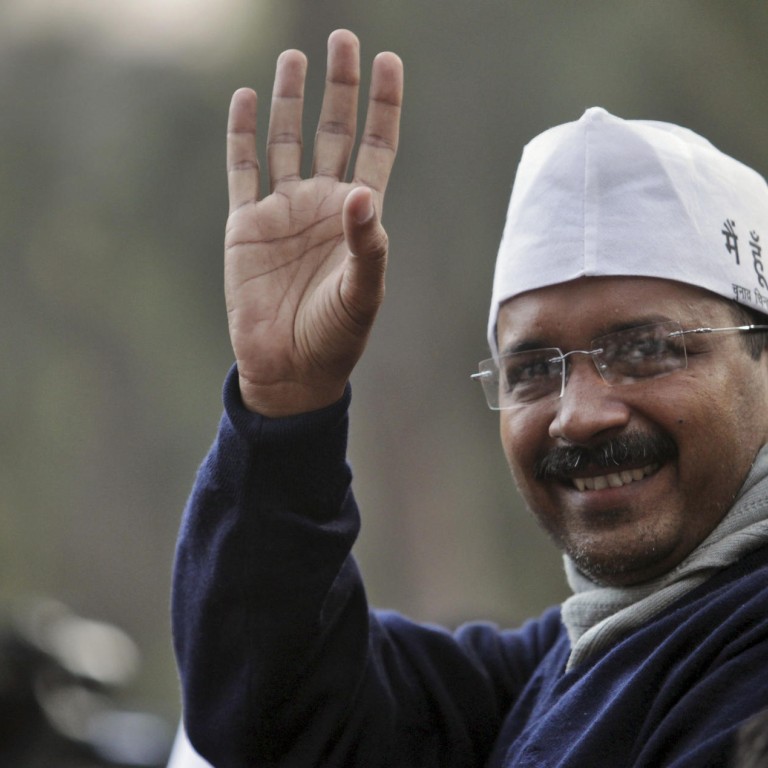
Indian anti-graft crusader Arvind Kejriwal quits as Delhi boss
Arvind Kejriwal resigns after 50 days in power as his bid to pass an anti-corruption legislation fails to win support of major political parties
Anti-graft activist and Delhi's firebrand Chief Minister Arvind Kejriwal announced his resignation yesterday to protest the blocking of an anti-corruption bill, less than 50 days after taking power in the Indian capital.
"My cabinet has decided that we are quitting. Here is my resignation letter," Kejriwal told supporters of his fledgling Aam Aadmi ("Common Man") Party in the capital, brandishing a white sheet of paper. "Straight after this, I am going to the Lieutenant Governor's office to hand in my resignation," he added, as his followers cheered.
The upstart Aam Aadmi party sent shockwaves through India's political establishment late last year when it scored a series of stunning electoral successes during local elections in Delhi. But Kejriwal's decision to resign little more than seven weeks after taking power in the city of 17 million throws his party's fortunes into uncertainty.
Congress had promised us, in writing, that they would support the bill
Kejriwal's announcement came shortly after local legislators effectively shot down his efforts to bring in anti-corruption legislation - the key plank of his manifesto in December's state elections. The Congress party decided not to back Kejriwal in yesterday's vote, claiming the measure was unconstitutional.
In his speech to supporters, the 45-year-old blamed Congress for his decision to resign, accusing Prime Minister Manmohan Singh's party of reneging on an earlier promise to back the bill.
"Congress had promised us, in writing, that they would support the bill but when we tried to present it before the assembly today both they and the BJP came together to block it," Kejriwal said. "This is the first time in India's history that both the BJP and Congress have come together ... They have exposed themselves and shown their true face."
Kejriwal, who had been the head of a minority administration since taking power on December 28, said he would ask Lieutenant Governor Najeeb Jung to immediately dissolve the Delhi assembly and organise fresh elections.
His party won 28 seats in Delhi's 70 member assembly and came to power with the help of the Congress party, which governs at national level.
However, fresh elections in the capital are unlikely and the Hindu nationalist Bharatiya Janata Party (BJP), which won 32 seats in the Delhi election, could try and form an alternative administration.
Kejriwal's resignation will leave him free to campaign for his party ahead of national elections which are expected by May. Although he only formed his party a year ago, its remarkable showing in the Delhi election shocked the country's political establishment.
While his elevation to one of the most important political posts in India was initially widely welcomed as a much-needed shock to the system, the former tax inspector has since come in for criticism over a series of stand-offs with the authorities.
The self-styled "anarchist" staged a sit-in on the pavement close to the national parliament last month, triggering chaos in the city centre, as part of a push to be given greater powers of control over the police.
Kejriwal earlier this week said he would file a police complaint against Reliance Industries Ltd., its billionaire Chairman Mukesh Ambani and Oil Minister Veerappa Moily for creating an artificial shortage of gas in the country.
"He's lost support within his own party and with the general public because he's behaving in a most unconstitutional manner," said B. G. Verghese, a political analyst with the New Delhi-based Centre for Policy Research. "He and his party will lose credibility in the national election."
